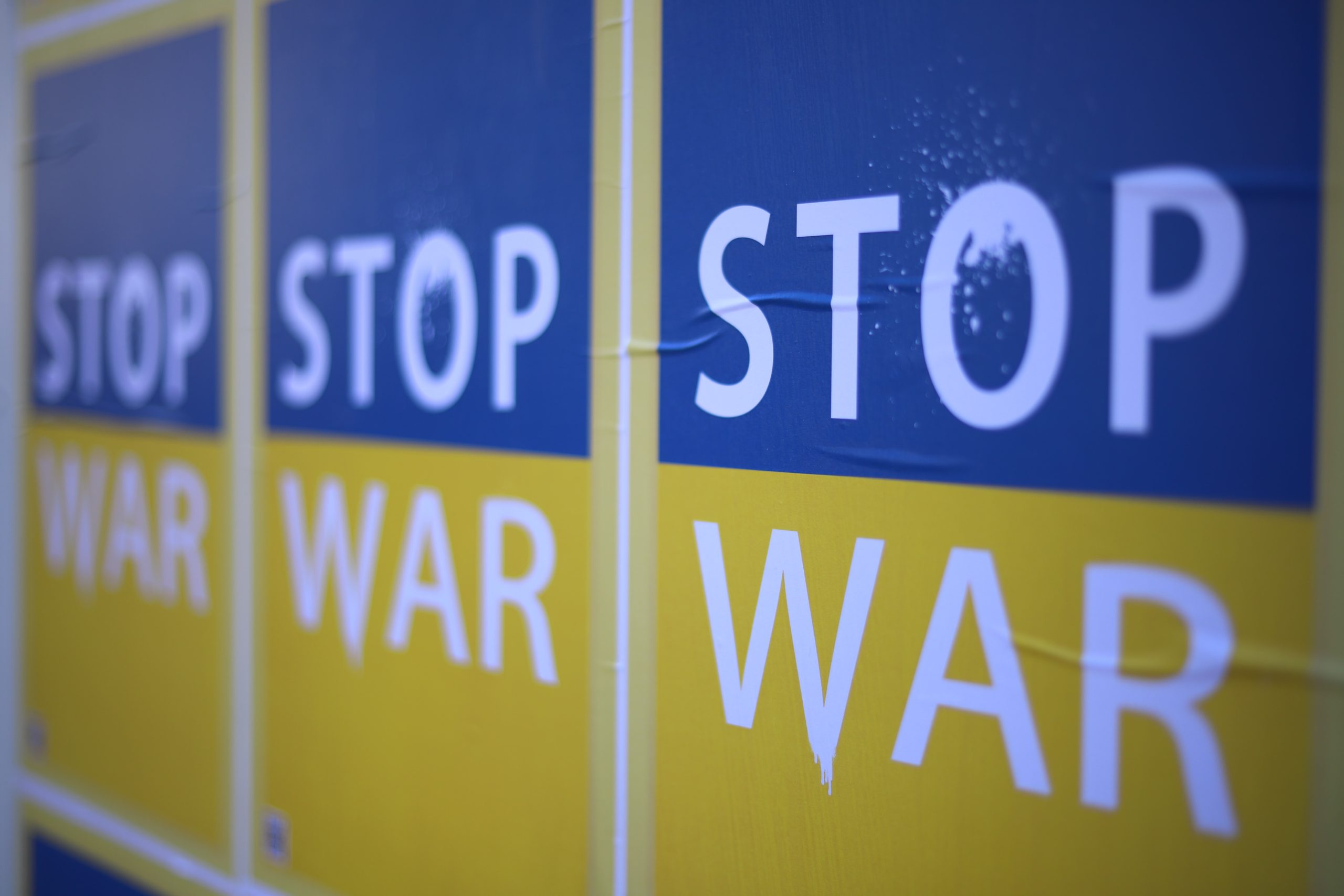Russia’s invasion of Ukraine has been met with condemnations and comprehensive measures, most notably from the United States and the European Union. While such actions are adequate and essential, the war still represents a serious deviation from international criminal law standards and an attack against the value of human life.
At dawn on February 24th, the grave atrocities of war once again appeared on European soil as an entire world watched the commencement of Russia’s invasion of Ukraine. The quick response of the international community, including the imposing of sanctions on Russian President Vladimir Putin and his closest personal allies to these vile acts, represented an almost universal condemnation, the likes of which there are few in modern history.
Something that has been perhaps even more poignant is the immense emotional support that people from all around the world have shown for Ukraine and its citizens, who are in the midst of bravely fighting a battle against authoritarian forces. In other words, there has been no shortage of proper actions against Russia’s aggression. However, when applying the perspective of international criminal law, Putin’s actions might actually represent a kind of fundamental disdain for morality itself that makes even the most vehement condemnations and sanctions look insufficient.
As with most armed conflicts, the situation in Ukraine raises several questions pertaining to the provisions of international criminal law. The historical roots of this legal discipline can be traced back to the aftermath of the abhorrent events of the first half of the 20th century, namely the two World Wars and the Holocaust. Ever since the concept of jus cogens has been one of the bearing principles of international criminal law. Jus cogens means that there are certain peremptory norms that may under no circumstances be subject to any sort of derogation, as any deviance of these standards represents a violation against the innate value of human life and a threat to the stability of the global order.
This doctrine has materialized into several international conventions, including the Rome Statute, which includes provisions regarding the four main crimes of international criminal law: genocide, crimes against humanity, war crimes, and crimes of aggression (Article 5 of The Rome Statute)1. It is also the Rome Statute that determines the jurisdiction of the International Criminal Court (ICC), i.e., the principal judicial body for prosecuting these crimes on an international level.
Neither Russia nor Ukraine has ratified the Rome Statute, which in turn drastically limits the ICC’s jurisdiction for acts committed in these territories or by citizens of any of the two nations. Nevertheless, there have been several reports of lethal attacks on civilians in Ukrainian cities. Ukraine President Volodymyr Zelensky called the bombings of Kharkiv’s Freedom Square war crimes, and US Secretary of State Anthony Blinken also recognized the fact that Russia was actively shelling civilian targets. Even before these appalling attacks took place in Kharkiv, ICC prosecutor Karim Khan announced his ambition of launching an investigation into possible war crimes or crimes against humanity since Ukraine has awarded jurisdiction to the Court. Ukraine has also taken Russia to the International Court of Justice for having launched the invasion on the pretext of false claims of an ongoing genocide against Ukraine’s Russian population.
Thus, it appears that the Western world, with a historically unprecedented degree of unanimity, has concluded that Russia’s actions constitute possible crimes of international law. But what does this mean exactly? What does it say about the views held by Putin and his lackeys?
Deviance from the established rules of armed conflict as blatant as this one speaks volumes of the perpetrator’s mindset. These violations cannot merely be the product of a geopolitical calculation, where the value of innocent human lives is weighed against the value of Russian dominance in the region. Instead, as a prerequisite of sorts, Putin’s actions must be something in the likes of a rejection of the concept of jus cogens as a whole. This is the only way that such irrational and horrendous acts can be understood in a logical context, which, needless to say, does not justify them. It, in fact, does rather the opposite since it manages to show that Putin essentially rejects the axiomatic foundation of morality, namely the value of life. The statement that the rejection of jus cogens is a rejection of morality is, as per the logic of international law, nothing short of a tautology.
So, where does that leave us? Well, the prospects of ever trying Putin and his subordinates before a court or tribunal are, unfortunately, quite unrealistic. A person cannot be tried in absentia before the ICC, meaning that Putin would have to be physically present for the trial. This would, in turn, suggest that Putin would have to be arrested in a state that has accepted the jurisdiction of the ICC, which more or less presupposes his removal from the presidency. These criteria even apply for crimes of aggression2, which are generally thought to be easier to prosecute in a situation like this one, where Putin has not directly committed any of the acts himself.
But with the possibility to share information in real-time, it is important to spread awareness about the Russian regime’s possible crimes in Ukraine. People from all around the world can, with their own eyes, see the barbarous cruelty of this war. And even though an official court verdict on this situation might never be reached, every true follower of freedom across the globe has already reached one.
Footnotes:
- “Genocide” refers to any act “committed with intent to destroy, in whole or in part, a national, ethnical, racial or religious group,” i.e., killing or causing serious bodily or mental harm to members of the group. Meanwhile, “crimes against humanity” include any act “committed as part of a widespread or systematic attack directed against any civilian population,” i.e., apartheid. On the other hand, “war crimes” refer to violations of the laws and customs applicable in an international armed conflict, including grave breaches to the Geneva Conventions, i.e., “intentionally directing attacks against the civilian population as such or against individual civilians not taking direct part in hostilities” (Art. 6-8 of The Rome Statute).
- “Crimes of aggression” refer to “the use of armed force by a State against the sovereignty, territorial integrity or political independence of another State, or in any other manner inconsistent with the Charter of the United Nations” (art. 8 bis of The Rome Statute).


